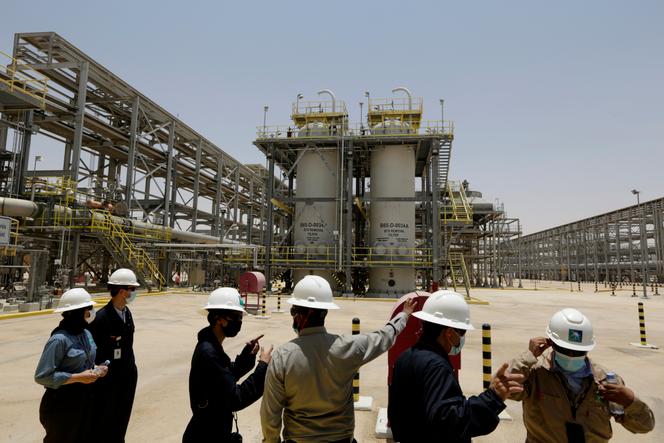


From the declared ambition of achieving a "zero carbon footprint" in the futuristic city of NEOM, currently under construction in the north of Saudi Arabia, to the regeneration of flora and fauna in future Red Sea resorts, the fight against global warming is the new leitmotif of Saudi megaprojects. The kingdom, which launched its modernization project in 2016 with the "Vision 2030" plan, now combines economic diversification, clean energy transition and environmental concerns. Riyadh intends to position itself as a global player in clean energy without, however, actually limiting its hydrocarbon production – much to the chagrin of climate experts.
Until COP26 in Glasgow in 2021, the Persian Gulf oil powers had earned themselves a reputation as "climate obstructionists," opposing any challenge to fossil fuels. Following in the UAE's footsteps, Riyadh has since joined the climate protection cause with its "Saudi Green Initiative." The kingdom has pledged to achieve "net zero emissions" by 2060, put state-owned oil giant Aramco on the path to carbon neutrality by 2050, generate 50% of its electricity from renewable sources by 2030 and plant 10 billion trees.
Saudi Arabia is now calling for climate objectives to focus not on "producing less" hydrocarbon, but on "producing cleaner." The environmental imperative is taken with increasing seriousness in this desert country particularly exposed to the effects of climate disruption, but "energy transitions in Arab states are driven by economic motivations," writes energy expert Manal Shehabi for the Washington-based Carnegie think tank. Anticipating a future decline in global demand for hydrocarbons, paralleled by a collapse of production in the US and Russia in the next 20 years, the kingdom wants to "safeguard hydrocarbon exports while generating new export revenue necessary to maintain the political equilibrium and the role of the state and to fund socioeconomic development," analyzes the expert.
Riyadh is focusing its efforts on ambitious export-oriented energy transition projects, such as carbon capture and storage (CCS) technologies and clean hydrogen – two technologies still in the making – but its own transition is progressing slowly. The Climate Action Tracker, a group of experts specializing in the evaluation of climate policies, has therefore considered the objectives and policies implemented by Saudi Arabia in line with the 2015 Paris Agreement – which aims to limit the rise in temperature to below 2°C and, if possible, to 1.5°C – to be "highly insufficient."
You have 55% of this article left to read. The rest is for subscribers only.
